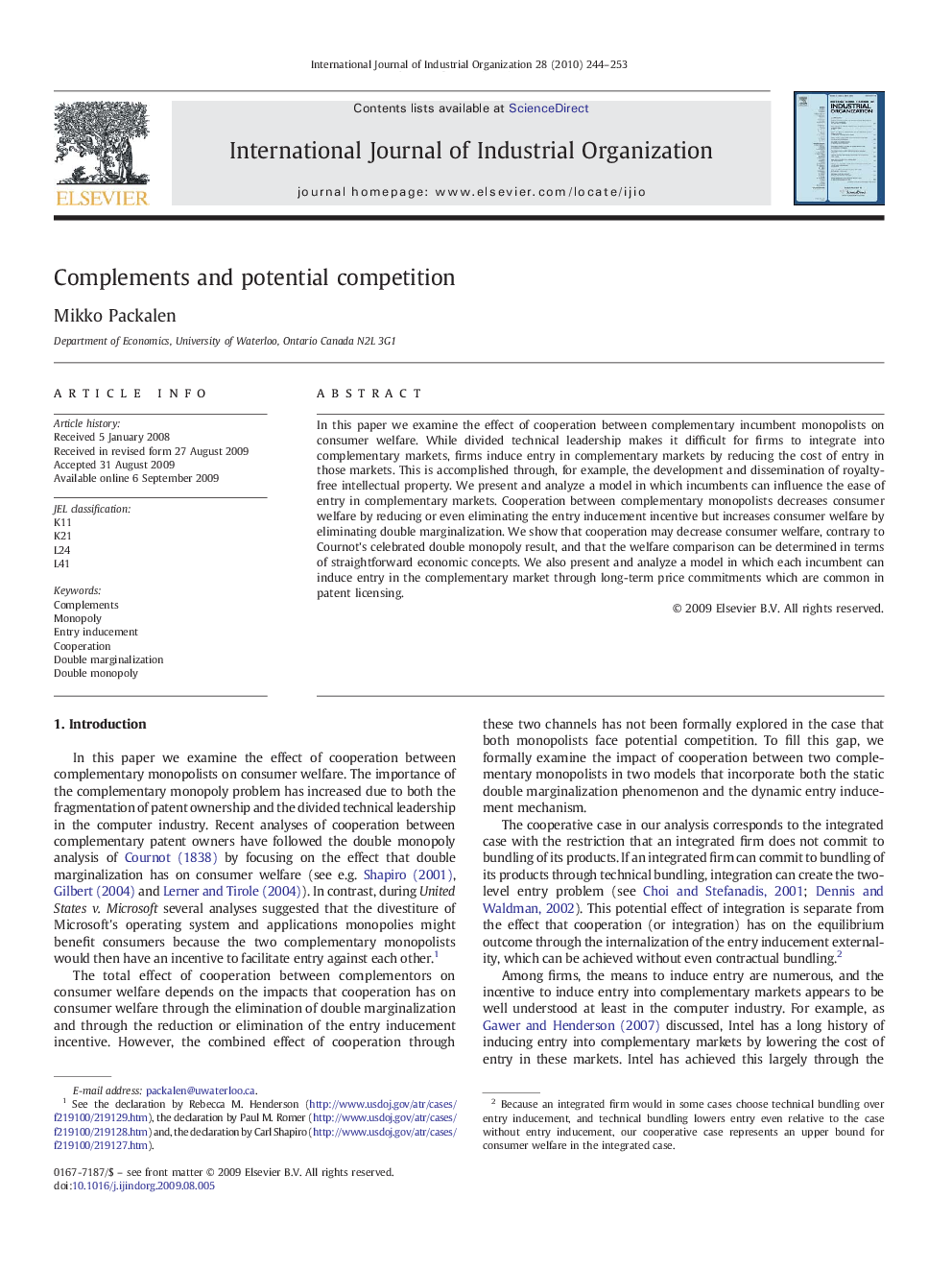| Article ID | Journal | Published Year | Pages | File Type |
|---|---|---|---|---|
| 5078522 | International Journal of Industrial Organization | 2010 | 10 Pages |
In this paper we examine the effect of cooperation between complementary incumbent monopolists on consumer welfare. While divided technical leadership makes it difficult for firms to integrate into complementary markets, firms induce entry in complementary markets by reducing the cost of entry in those markets. This is accomplished through, for example, the development and dissemination of royalty-free intellectual property. We present and analyze a model in which incumbents can influence the ease of entry in complementary markets. Cooperation between complementary monopolists decreases consumer welfare by reducing or even eliminating the entry inducement incentive but increases consumer welfare by eliminating double marginalization. We show that cooperation may decrease consumer welfare, contrary to Cournot's celebrated double monopoly result, and that the welfare comparison can be determined in terms of straightforward economic concepts. We also present and analyze a model in which each incumbent can induce entry in the complementary market through long-term price commitments which are common in patent licensing.
